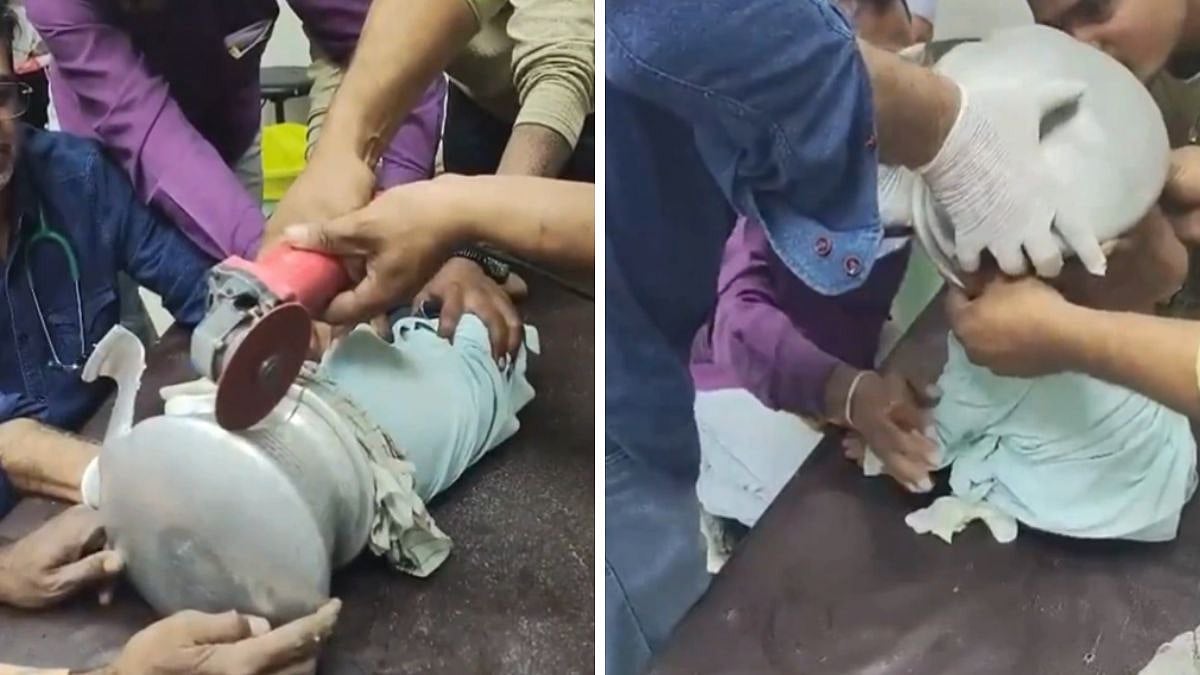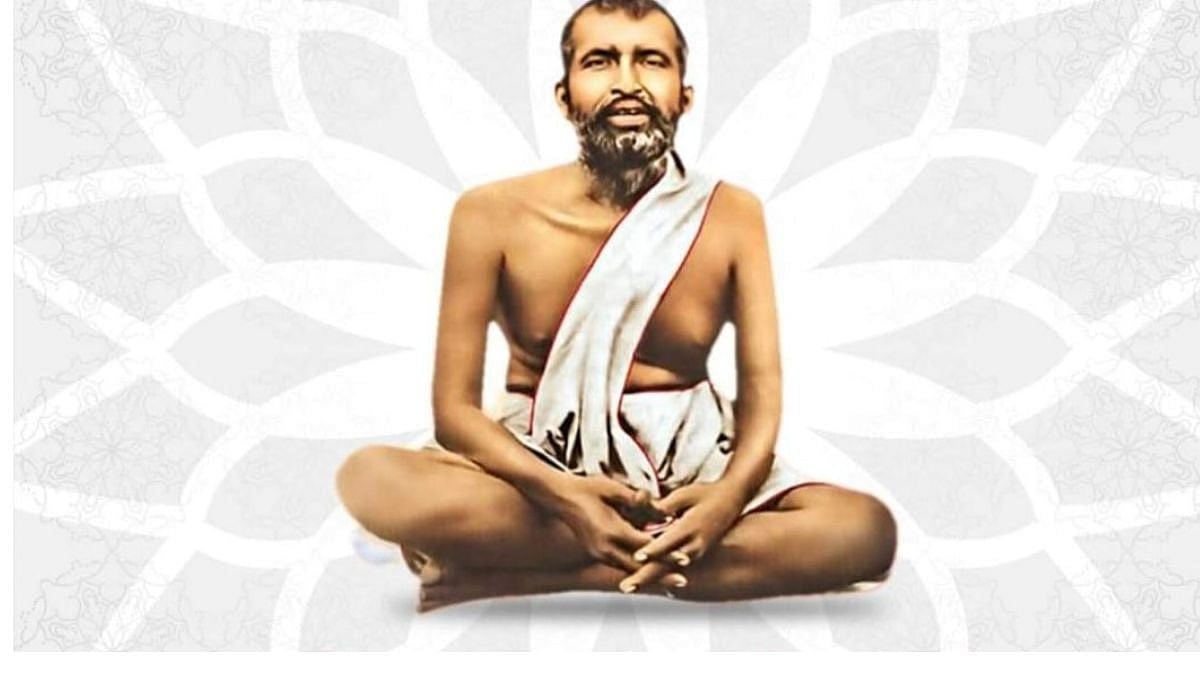Two decades after India’s resounding victory at Kargil, stories and accounts of the war continue to be narrated with immense pride. Yet, one pertinent perspective has been largely overlooked – that of the army wives. What does a soldier go through, when marching off to a near-suicidal mission? And what does it take to survive, even thrive, having sustained serious injuries in battle? A detailed memoir Nation First by Shikha Akhilesh Saxena narrates the boundless bravery of the Indian troops, as well as the emotional tumult experienced by their families both during and after the war.
While there are many books describing the Kargil War and the heroic acts of our men, Nation First, rather takes an opportunity to tell the story from the point of view of a wounded officer's wife. An army officer's wife herself Shikha has not only seen the war but has also borne the brunt of it. Shikha married Captain Saxena and entered the world of defence forces, only to face a ruthless war and separation within two months. The newlywed couple was ready to sacrifice their eternal love for the ultimate patriotism and duty to the country. “The true scenario of the war was narrated to me by my injured husband, who survived in the shower of bullets where most of his war buddies were martyred,” says Shikha Saxena.

Marching toward a suicidal mission
With a detailed description of the Kargil war, Shikha not only sketches out the emotions of an army officer who is going on a suicidal mission and his wife but also gives a window to peep into the life of armed force personnel. As an artillery officer, Captain Saxena led three crucial attacks — Tololing, Hump, and Three Pimples, with infantry battalions. He was part of the main assault team and directed the massive firing of 120 artillery guns on Tololing when India got its first victory in the Kargil War. His bravery and accurate artillery firing provided the base for infantry battalions to conquer in all three missions.
“By the grace of God, even after being hit by enemy artillery splinters, he survived to tell inspiring tales and draw true illustrations of the war,” expresses the author. Among those who shared war moments with Captain Saxena were Col. Ravindranath, Maj. Acharya, Maj. Vivek Gupta, Capt. Vijayant Thapar, and Capt. Vikram Batra. All of them were martyrs while fighting the war.
With first-hand and undocumented information, the story reflects the mental status, emotions, and interactions within the Indian troops who marched forward on the peaks of Kargil for the suicidal missions. Shikha writes the memoir, giving an experience of that period from a different perspective — “Kargil War from the eyes of an officer’s wife.”
Love in times of War
When Captain Saxena was back from the war, he had painful memories of losing his men and severe injuries, one leading to permanent disability. “My mother warned me about the hardships one has to face marrying an army person, but I was still inclined to marry an army officer,” says Shikha. It was a matter of a week when they first met through matrimony and got engaged. The two married in a traditional Hindu marriage. Shikha recalls, “I told Captain Saxena about the marriage eight days before the day.” The two had their share of togetherness before the war was announced. “Soldiers don’t even know how these ladies find solutions to every problem they face within their families,” she mentions.
Akhilesh received orders for a field posting to Kashmir. The order came as a surprise during a get-together. Although Kashmir is one of the most beautiful locations in India, it was one of the worst postings in defence services. With unpleasant thoughts, the couple returned home. Now Shikha had to repack the house she had unpacked just two weeks back. The information was robust in the unit that conditions were not good at the border. Soon, Akhilesh left Shikha to join his duty. Somebody then quoted, “As soon as Sita came into Ram’s life, he had to go to Vanvas (exile).” Society tagged Shikha as an unlucky bride. The situation deeply hurt and left her in a sombre mood. In this condition, her parents brought her back home, and she went back to work.

The cruel footprints of the war
On 14 May 1999, news channels flashed with updates about a missing officer, Captain Saurabh Kalia, and five other soldiers. This news spread like fire. The army wives network confirmed to Shikha that something suspicious was going on at the border. The peaks of Kargil, where Indian troops marched towards their military outposts. The Indian Army inducted 56 Mountain Brigade of 8 Mountain Division into Dras for eviction operations in the sector. After a few operations failed, the brigade realised they were not pitted against a handful of militants but a full-fledged Pakistani Army. So, the Indian Army included the Artillery Brigade in the conflict. Soon, Captain Saxena was leading the convoy of artillery guns of the 1889 Light Regiment on NH1 heading towards Dras. He hid the truth from his wife that his regiment had gotten orders to move to LOC. This was the time to fulfil the pledge he had taken at the time of his passing out from Indian Military Academy, IMA. Indian Air Force, Indian Artillery, and Indian Infantry did their part in preparation to build the success and turn the tide of the Kargil War.
At Dropadi Kund, 18 kilometres from the town of Dras, the commander of the artillery brigade took a meeting with the officers for updates. Till now, six attempts by the Indian Army and Air Force on Tololing had faced setbacks. The conditions were very serious. Capt. Saxena was part of 2 Rajputana Rifles for the attacks at Tololing as an Artillery Forward Officer. Soldiers faced sickness because of less oxygen at the height of 16,000 feet. Most of the assaults took place in the cold at night. Captain Saxena was part of the main assault team and directed the massive firing of 120 artillery guns on Tololing when India got its first victory in the Kargil War. After Tololing, Capt Saxena was part of the attacks on Hump and Three Pimples. “While soldiers were fighting on the LOC, army officers’ wives were working for the welfare of the families. They gathered their courage and made themselves strong to fight against the adversities of life,” writes Shikha.
Capt Saxena wrote his last letter to his parents and wife. In the emotionally weak moments when Shikha writes, a soldier behaves like a normal human being and becomes nostalgic, depressed, and emotional. During the assault of Three Pimples, four brave officers from 2 Rajputana Rifles made the supreme sacrifice, and enemy shelling and splinters hit Capt Saxena. With bullet injuries, he walked down for eight hours to get medical aid. Because of several medical procedures, he remained unconscious for three days at Srinagar Base Hospital. The explosive blasts and flowing blood caused the ice on the Kargil peaks to turn black. The image of shelling in the sky and dead bodies everywhere on the ground were now frozen in the mind of Capt Saxena for eternity. “These ugly memories will not leave me till I am breathing on this earth. Disability was the small price I paid for the freedom of our country,” says the war veteran.

Captain Akhilesh Saxena |
Bedridden with a few plasters, looking like black skin on a skeleton, Captain Saxena reached Delhi hospital where he met his wife and parents. He shared the merciless truths of war with his wife in the hospital. Because of intense pain, this disabled soldier could not sleep for nights while Shikha kept sitting at his bedside, giving Reiki to him. “When Akhilesh visited his disabled soldiers in hospital and found them in deep misery, this hit him hard. He decided to overcome his grief and help others too. Affection and admiration from civilians helped these soldiers forget their pain,” says Shikha.
War left cruel footprints even after it ended. Captain Saxena was declared medically unfit for field duty because of permanent disabilities. The couple fought against all disabilities and unsettled situations of life and worked hard to make their transition from army to corporate life. Capt Saxena is a Vice President at Tata Communications, and Shikha is a mother of two grown-up kids driving a passion to create awareness about the values of armed forces in civilian society through her company Inspiring Mantras. “Life may throw any adverse situation at you, It’s your choice to face it with a victim’s mindset or a winner’s attitude. That will make all the difference,” she says.











